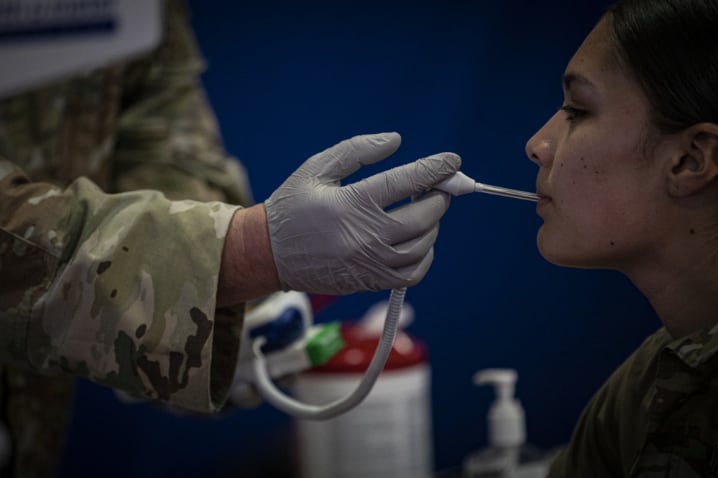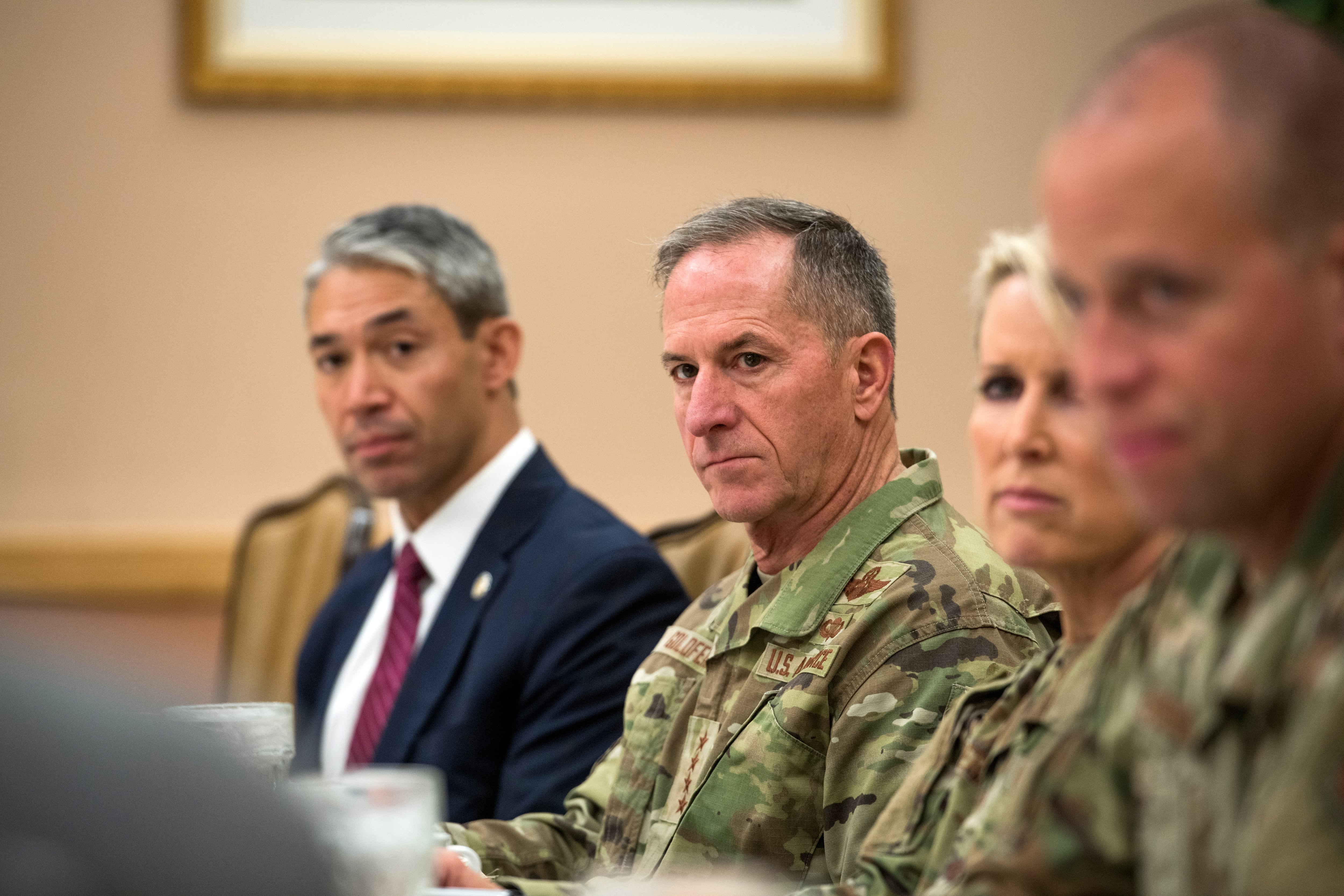The Department of Defense is poised to get another $10.5 billion in emergency funding and the Department of Veterans Affairs another $19.6 billion as part of a $2 trillion package designed to blunt the economic impact of the ongoing coronavirus outbreak throughout America.
The money includes $1.4 billion in direct funding for National Guard deployments to help state governments respond to emerging health needs, $1.5 billion for the expansion of military hospitals and mobile medical centers if needed, and $1 billion for the Defense Department to help with production of medical supplies running short because of the pandemic.
The measure — which if passed would be the third major coronavirus response by Congress this month — also includes provisions to deliver billions of dollars to hospitals, new state and local government support, expanded unemployment compensation and massive business loans, all designed to help stabilize the economy amid unprecedented social shut-downs to curb the virus spread.
RELATED

Senate lawmakers are expected to vote on the measure sometime Wednesday afternoon. The House could take it up soon afterwards.
Nationally, more than 54,000 individuals have tested positive for COVID-19, the strain of coronavirus causing worldwide disruptions and panic. More than 730 deaths have been connected to the illness in the United States alone, all in the last month.
"Combating this disease has forced our country to put huge parts of our national life on pause and triggered layoffs at a breath-taking pace,” Senate Majority Leader Mitch McConnell, R-Ky., said after the deal was reached Wednesday morning. “This strange new reality has forced our nation on to something like war-time footing. A fight has arrived on our shores.”
Lawmakers who worked on the agreement said the Defense Department funding is targeted “primarily for the protection of members of the Armed Forces, their families, and military retirees.”
None of the funds can be transferred to accounts connected with the construction of a southern border wall, a sticking point between Democrats and President Donald Trump in past appropriations fights.
RELATED

Of the $10.5 billion total, $1 billion will be set aside for use with the Defense Production Act, allowing department officials to “invest in manufacturing capabilities that are key to increasing the production rate of personal protective equipment and medical equipment.”
Those items have been in short supply in recent weeks. Trump invoked the act earlier this week but has yet to order any civilian production of the scare items.
Veterans Affairs
Within VA, the majority of the money — nearly $15.9 billion — will be used for direct care specifically in response to veterans health needs.
“This covers treatment of veterans nationwide for coronavirus within VA hospitals as well as in community urgent care clinics and emergency rooms,” a bill summary stated. “These funds allow VA to cover overtime for their clinical staff, the purchase of personal protective equipment, test kits, and other necessary equipment to manage the impacts of this pandemic among the veteran population.”
Another $3.1 billion will be set aside for new telemedicine efforts within VA, including staffing and equipping mobile treatment sites and “remodeling to VA facilities and state run veterans homes to address the needs of veterans being treated for coronavirus.”
Nearly 300 veterans have already been diagnosed with the coronavirus strain, and four deaths of VA patients connected to the illness.
The bill also includes a number of expanded authorities for VA officials to respond to the threat, including extended overtime pay rules for medical providers, new agreements with broadband internet suppliers to increase telemedicine options for veterans, and waiving some rules regarding income-level eligibility for department benefits.
Lawmakers also included $360 million for the Department of Labor to invest in programs providing training and supportive services for dislocated workers, to specifically include homeless veterans.
White House officials have indicated Trump will sign the measure into law if it passes Congress. Earlier this week, Trump called on lawmakers to quickly pass some deal, saying that the economic impact of the illness on the country could be more devastating than the health complications.
Leo covers Congress, Veterans Affairs and the White House for Military Times. He has covered Washington, D.C. since 2004, focusing on military personnel and veterans policies. His work has earned numerous honors, including a 2009 Polk award, a 2010 National Headliner Award, the IAVA Leadership in Journalism award and the VFW News Media award.





